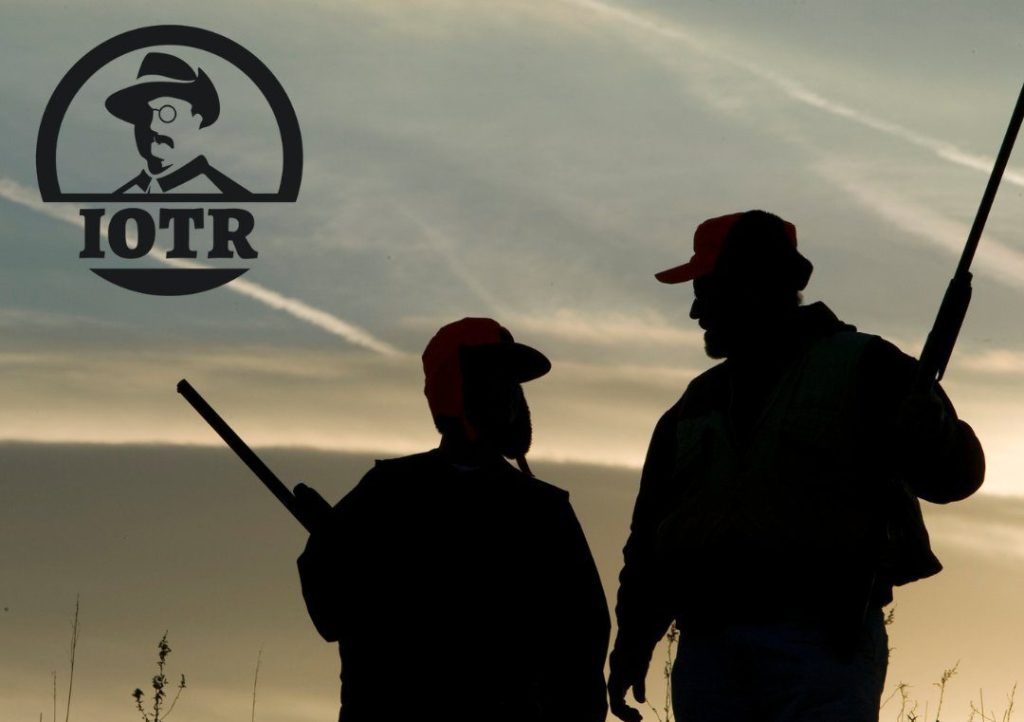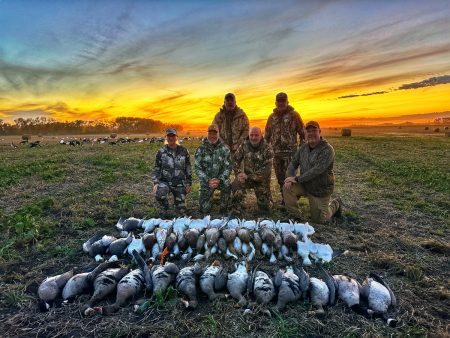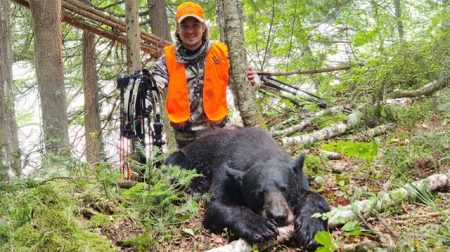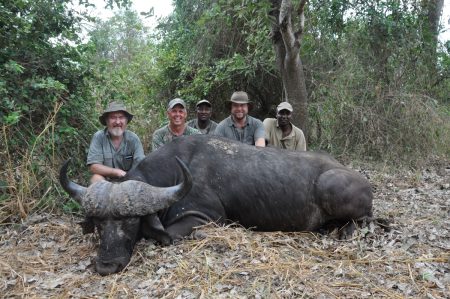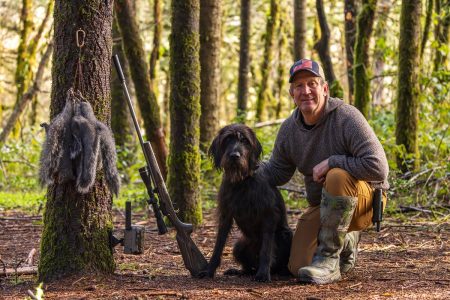Guest Editorial Written by: Luke Hilgemann – Executive Director IOTR
Imagine an America where parents and children risk criminal charges for participating in their beloved annual deer hunt. Hunting and fishing in America is an activity many enjoy. However, these practices are encountering new threats across the country. Activist groups are fervently pushing for bans on these activities, and such initiatives are gaining momentum. Hunting and fishing are more than just pastimes for many families; they are a part of their heritage and way of life. These bans will impact their ability to sustain these long-practiced activities.
In 2020, activists in Oregon worked to impose a ban on hunting and fishing on the ballot. The initiative, known as Initiative Petition 13 (IP 13), aimed to criminalize any practice involving the intentional injury of an animal, including otherwise legal hunting and fishing. This proposal was met with significant backlash from the hunting and fishing communities. The Lead NRA attorney and Oregon State Director, Aoibheann Cline, stated that “IP 13 would have a fatal effect on the conservation of Oregon’s natural resources.” Cline added that this bill would cut off substantial funding, leading to “a detrimental impact on wildlife management, fish and wildlife populations, habitat restoration, and equitable access to the outdoors.” Similar initiatives are also being promoted in states like Washington and New Mexico.
Organizations like the International Order of T. Roosevelt are responding to these legislative challenges with urgency and commitment. Through our advocacy arm T. Roosevelt Action, we’re emphasizing the critical role hunters play in conservation efforts, advocating that hunting activities are not only a tradition but also a significant contributor to conservation funding. Approximately 75 cents of every dollar spent on conservation efforts in the U.S. comes from hunters. This funding is indispensable in protecting wildlife habitats while ensuring biodiversity and maintaining a healthy environment. Therefore, restrictions and bans on hunting could severely impact the financial resources necessary to sustain these crucial initiatives.
Moreover, economic contributions from hunting and fishing extend beyond conservation funding, significantly benefiting local economies and job markets. In Florida, the state’s freshwater and fishing industry alone generates roughly $13.8 billion annually and facilitates more than 120,000 jobs. At the same time, hunting provides around $2 billion in economic impact while sustaining 14,300 jobs. Hunters often spend money on lodging, equipment, and other items supporting small businesses and job creation, as seen in Florida. This economic infusion helps to stabilize local economies and fosters a culture of environmental stewardship. Organizations like ours strive to balance conservation goals by cultivating responsible hunting practices alongside the traditions and livelihoods of hunting communities. It is essential to recognize that hunters are among the most passionate advocates for wildlife conservation, and their involvement is indispensable for the continued success of conservation programs nationwide. Restricting these activities could lead to severe financial consequences for the surrounding communities.
Considering the broader implications of hunting bans and recognizing that the restrictions threaten local economies and conservation efforts is essential. These limitations also challenge our cultural heritage and freedoms. That is why it is crucial to establish a constitutional right to hunt in all states as a preemptive measure against restrictive legislation. Twenty-three states have already enshrined the right to hunt in their constitutions. However, many other states still need to implement these protections, and now is the time to act.
The threats to our heritage don’t stop at the Constitution. In states like Wisconsin, hunting is necessary to control growing wolf populations, protect livestock, and balance ecosystems. If left unchecked, packs of predatory wolves would drastically hinder the natural growth of the wildlife prey populations while at the same time increasing livestock predation incidents, adversely impacting local farmers and ranchers. However, some activists oppose hunting wolves, advocating for their protection despite the abundant evidence supporting managed hunting for ecosystem balance. These activists forgo the scientific data showing how controlled hunting of wolves helps maintain a healthy predator population while preventing the negative impacts of overpopulation. Sadly, bureaucrats and bad-acting government officials have blocked efforts to reach appropriate compromises at every turn. Their restriction disregards the needs of residents and hampers effective wildlife management strategies and trusted heritage practices proven to work.
Opponents of hunting are often well-funded and organized. Groups such as the People for the Ethical Treatment of Animals (PETA), the Humane Society of the United States, and the Animal Legal Defense Fund are dedicated to promoting animal rights, which sometimes includes efforts to limit or ban hunting. These organizations employ extensive resources to garner public outreach through sophisticated media and lobbying campaigns that critically influence public opinion and policy decisions. These organizations are formidable and can rally substantial resources to advocate for their causes.
As hunters and anglers face increasing legislative threats, another crucial battle is unfolding within the United States Supreme Court. This battle directly affects all those who enjoy partaking in the lifestyle of hunting and fishing. The Chevron doctrine, established nearly 40 years ago, rules that the courts should defer to federal agencies’ interpretations of ambiguous laws. The Supreme Court is currently reconsidering this precedent in a case where the government placed unnecessary restrictions on east-coast commercial fisherman, endangering their livelihood. The court’s decision is crucial for those who enjoy their constitutional rights and the freedom of the outdoors.
The decision of the Supreme Court would significantly alter environmental and wildlife regulations, impacting hunting and fishing practices. Agencies such as the U.S. Fish and Wildlife Service (USFWS) support the Chevron doctrine, enabling them to employ their expertise to implement restrictions that negatively impact hunters’ and angler’s rights. The Chevron case directly affects the lives of hunters and fishermen as it underscores the broader struggle to maintain control over traditional and long-standing practices against a backdrop of evolving regulatory interpretations. Now that Chevron is overturned by the Supreme Court, state-level regulations supporting hunting and fishing might gain more traction and impede federal constraints lobbied for by anti-hunting activist groups.
Organizations like IOTR must remain sharp and proactive in this ever-changing legal landscape. By educating and engaging in the importance civic engagement, we can better navigate regulatory changes and advocate for policies that effectively protect hunting and fishing rights.
Hunters need to stay vigilant and organized. The International Order of T. Roosevelt is active in states like Florida, promoting constitutional amendments to protect hunting rights. In recent years, we have successfully defended hunting regulations that were under threat from restrictive legislation. We are also launching efforts in Ohio, Iowa, and South Dakota to raise awareness among hunters about potential threats to their rights. . The International Order of T. Roosevelt is leading the charge to ensure hunters and anglers have access to our wildlands. Our proactive efforts focus on maintaining funding for conservation programs and ensuring fair use of public lands.
Preserving hunting traditions is an integral part of maintaining American heritage. These traditions embody the spirit of self-reliance and respect for nature, which are core American values. Hunting has been passed down through generations since the time of our founding fathers. It serves as a means of sustenance and a way to connect with the natural world and pass on essential survival skills.
We need to fight back. By uniting together, we can strengthen our impact and oppose restrictive measures. Constitutional protections can make it more challenging for anti-hunting legislation to be enacted, thereby preserving these practices for future generations. Organizations like IOTR must stand together to lead the fight against out-of-control activists who are eroding our rights. We can effectively counter the well-funded opposition through public awareness and legal action.
By standing together and staying informed, we can ensure that future generations experience the same joys and responsibilities of hunting that our forefathers cherished. Education is a crucial component of our effort, as it provides factual information about the benefits of hunting. This fight is not just about today but about safeguarding our traditions, conserving wildlife, and maintaining the delicate balance of our ecosystems for generations to come. As a renowned conservationist and protector of the great outdoors, American President Theodore Roosevelt, stated, “It is not what we have that will make us a great nation; it is the way in which we use it.”
The future of hunting depends on our collective action and commitment. We can preserve our cherished traditions by advocating for constitutional rights, educating our communities, and supporting conservation efforts. Together, we can rise to the challenge, ensuring that hunting remains an integral part of our cultural fabric and a vital tool for conservation. The road ahead may be challenging, but with determination and unity, we can protect the legacy of hunting for generations to come.
Luke Hilgemann is the executive director of the International Order of T. Roosevelt, a group working to protect our hunting heritage and at-risk wildlife habitats before they are gone. For more information, visit their website at https://t-roosevelt.org/



